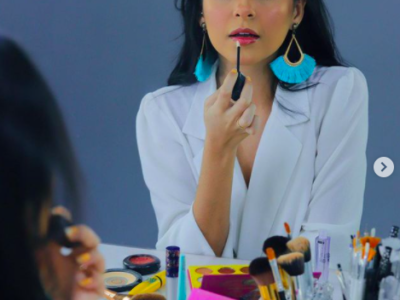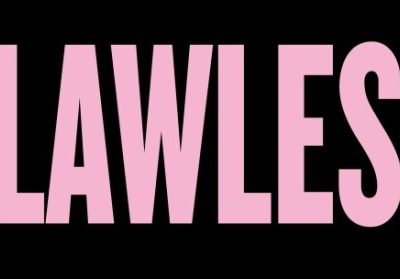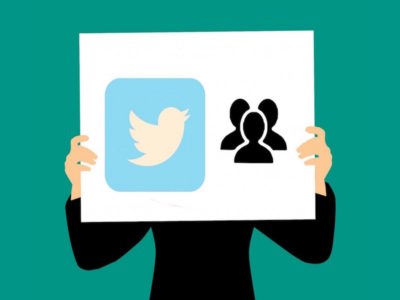What is a personal brand and why is it important? Personal branding is the way you market yourself when you are networking and looking for career opportunities, but most importantly, it determines your values and your own story. Creating a personal brand is crucial when considering future job opportunities and professional goals. Beyond social media updates and LinkedIn networks, your personal brand represents what you stand for and who you are.
Here are 10 helpful questions to ask yourself when you are building your personal brand and discovering what you stand for.
1. What is your ultimate career goal?

Are you building your own business from the ground up? Or, maybe you are hoping to go to graduate school and study to become a lawyer? If you know what kind of job or profession you want when you graduate, you can start working on building your brand. Even if you don’t know yet, don’t worry. Work on determining skills you can develop for future jobs, such as computer coding or search engine optimization techniques.
2. What makes you different from the rest?

Competition between peers and employees can sometimes be overwhelming. You may feel like other people are better than you or have more experience in your career field. However, you must ask yourself, “what is something unique about me that makes me different.” “One interview tip I always give is to wear something appropriate but also something that makes you memorable,” said Morgan Wider, an author and founder of Wider Style. “People will remember you if you stand out from the rest.” Maybe you can speak different languages or maybe you are good with computers. Use your skills to show yourself to employers that you are an asset to them.
3. What brings me joy?

When determining what you want in your professional life, think about what you do in your personal life that makes you happy. “Remaining true to ourselves involves both choosing who we are and understanding who we’re not,” said Taylor Williams, creative director of Guts & Glory GNV. “That’s personal branding, but it’s also just being self-aware and responsible.” If you love painting, you may want a career that incorporates creativity and expression. If you enjoy being outside in nature, you may want to avoid a cubicle desk job. A great way to determine what brings you joy is to sit down and write a list of things that you love to do. Then, with some research on the internet, see what jobs can incorporate some of those elements. Finding what brings you happiness will help you create an authentic brand.
4. What motivates you?

Determining what motivates you will help you in your long-term career goals. Determine your “why.” What gets you excited every morning when you wake up? Having a drive and motivating passion will help you create a career you can be proud of. To understand how your brain and personality operate, take a personality test. There are many online tests you can take, but a good one to start with is the Myers-Briggs Personality test.
5. What do you want to be known for?

The most important factor in personal branding is authenticity. You want to make sure that how you represent yourself aligns with who you are as a person. When you have your values set in stone, you can start creating goals for yourself. These goals can help lead you to the professional legacy that you dream of. “People can sense when you’re faking it, so it’s really important to stay true to who you are and remain authentic,” Wider said. By creating a roadmap of where you want to go, you can have a purpose in your professional life. Ask yourself: Where do I want to be in 5 to 10 years? Am I traveling the world? Or am I working at my dream business? What do I want to accomplish?
6. What are your strengths?

Were you the star athlete on your school soccer team? Or maybe president of the feminist club? Perhaps you helped a friend get through a tough time by listening to their problems and being a good friend. All of us have particular strengths. Some of us are natural-born leaders; others are great problem-solvers. What are you naturally good at, that may be hard for others? Use your strengths and market them in your personal brand.
7. What are your weaknesses?

Like kryptonite is to Superman, we all have a weakness. However, it may be good to identify weaknesses in order to work on them or acknowledge a need for help. Some questions you can ask yourself include: Are you a big procrastinator? How do you take criticism? What kind of work do you hate doing? What are things that frustrate you? Knowing your weaknesses will allow you to focus on yourself. The extra focus and time you invest in yourself will result in a better version of you, which can help you succeed in the long run. This question is typically asked in all job interviews, so it is also important to make sure you have an answer prepared.
8. Who are the top brands or people who inspire you?

Do you look up to a famous YouTuber or Instagram influencer? Or maybe your favorite blogger has a killer fashion style that you aspire to? When determining your own brand, look at people who have a brand similar to what you want your brand to look like. By taking inspiration from each brand, you can incorporate different features that you like into your own original brand. “My biggest piece of advice to college students is to be the main distributor of your content,” said Collin Austin, founder of New Scooters 4 Less. “Create your own website and upload your resume, blogs, videos, other content and link to your social channels.” Social media will be an important factor when finding brands and people who inspire you. Look at their online content and see how they represent themselves. Then on your own online presence, make sure you authentically reflect your personal brand.
9. What colors do you identify with?

Identifying a color that goes with your personality will help you craft your personal brand. For example, what is the first thing that comes to your mind when you think of the color yellow? Often, yellow is associated with the sun, a bubbly personality and warmth. Think of the first thing that comes to mind when you think of the color red? Red can be considered a more severe and intense color. Colors can help when you want to brand yourself online, especially if you are building a website or online portfolio. Or, if you plan on buying business cards to hand out, finding colors representing your personal brand is a crucial step.
10. How do you want to represent yourself on social media?

Social media is crucial when developing an online brand. What you tweet, post, photograph and comment on is a direct representation of you. “Be intentional about what you post and create, and remember to consider how it affects others, even while it represents you,” Williams said. Online networking can be a great way to connect with people of similar interests and find opportunities in your career field. Building an online presence through LinkedIn and Instagram, or maybe even starting your own website, are great ways to stay connected on the internet and represent yourself publicly.



















